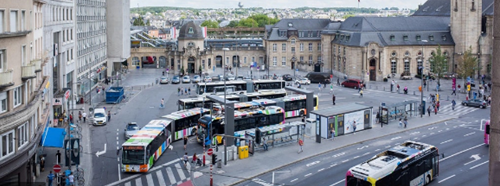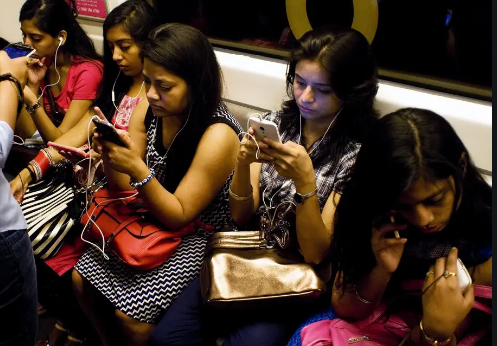|
 Luxembourg makes public transport free Luxembourg makes public transport free
|
Luxembourg City is set to become the first country in the world to make all its public transport free. Fares on trains, trams, and buses will be lifted next summer under the plans of the re-elected coalition government led by Xavier Bettel, who was sworn in for a second term as prime minister,
Bettel, whose Democratic party will form a government with the leftwing Socialist Workers’ party and the Greens, had vowed to prioritize the environment during the recent election campaign.
Luxembourg City, the capital of the small Grand Duchy, suffers from some of the worst traffic congestion in the world.
It is home to about 110,000 people, but a
|
|
further 400,000 commute into the city to work. A study suggested that drivers in the capital spent an average of 33 hours in traffic jams in 2016.
While the country as a whole has 600,000 inhabitants, nearly 200,000 people living in France, Belgium and Germany cross the border every day to work in Luxembourg.
Luxembourg has increasingly shown a progressive attitude to transport. This summer, the government brought in free transport for every child and young person under the age of 20. Secondary school students can use free shuttles between their institution and their home.
Now, from the start of 2020, all tickets will be abolished, saving on the collection of fares and the policing of ticket purchases.
|
|
François Bausch, the minister of mobility and public works, describes the move as: “The social icing on the cake of the global strategy for a multimodal revolution
The strategy aims to reduce the gap between rich and poor and to reduce congestion. The Grand Duchy is thriving economically but has severe problems with traffic. Luxembourg has more cars per capita than any other country in the European Union, and only one in five commuters use public transport.
Free transport has a future in Britain, but it will never cover the whole country. There is one UK location where buses and trains have been free for many years: around Heathrow Airport. In time, city transport will become civic-
|
|
|
funded amenity just like bin collections and street lighting. Already, ticketless travel on Saturdays and Sundays could work wonders in reducing traffic congestion and boosting the quality of life: the mayor of Manchester might want to try it as an experiment one weekend. In a decade or two, with sufficient investment in capacity, central London could become a free travel zone.
In India, the Delhi government has made bus travel free for all women. Only 30% of daily ridership in Delhi Metro and buses is made up of women. We continue to have a stark gender wage gap, with women getting less pay than men for equal work. The gender disparity is a serious stress women’s access to finance is so limited that they often find public transport prohibitively expensive.
In 2013 Estonia became the world’s first capital city to offer residents free public transport. Last year, Estonia set the ambition of becoming the first country with free public transport nationwide. Buses are now free of charge in 11 of its 15 counties. Since Estonia regained independence in 1991, car ownership rates have doubled.
 Free travel for women in Delhi - India Free travel for women in Delhi - India
|
|
